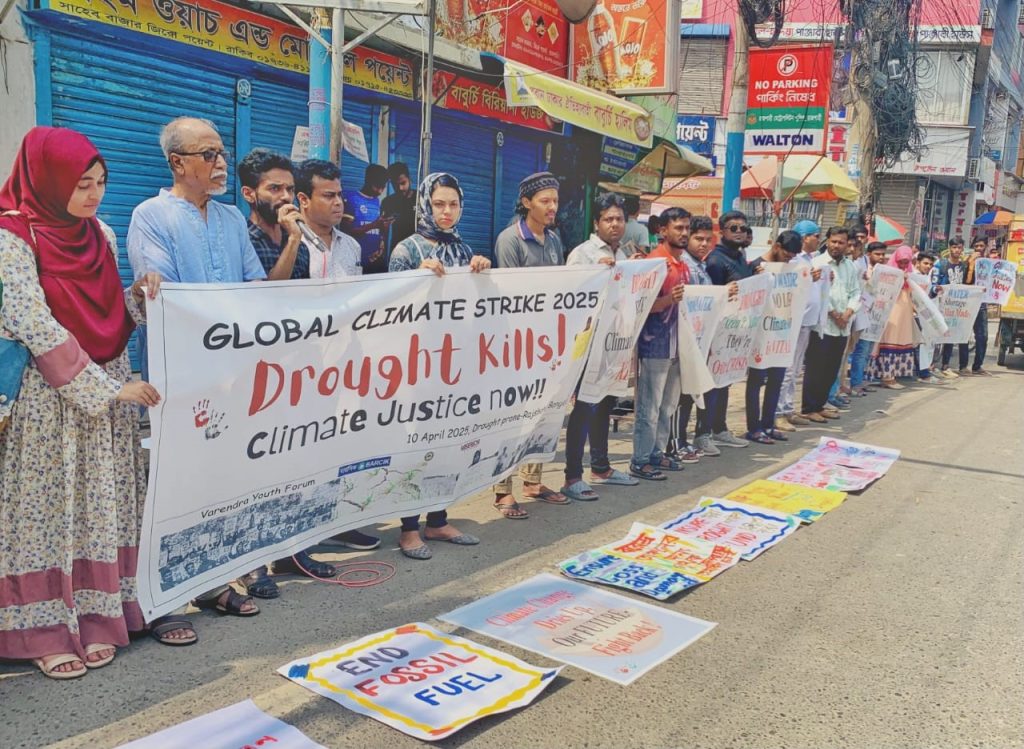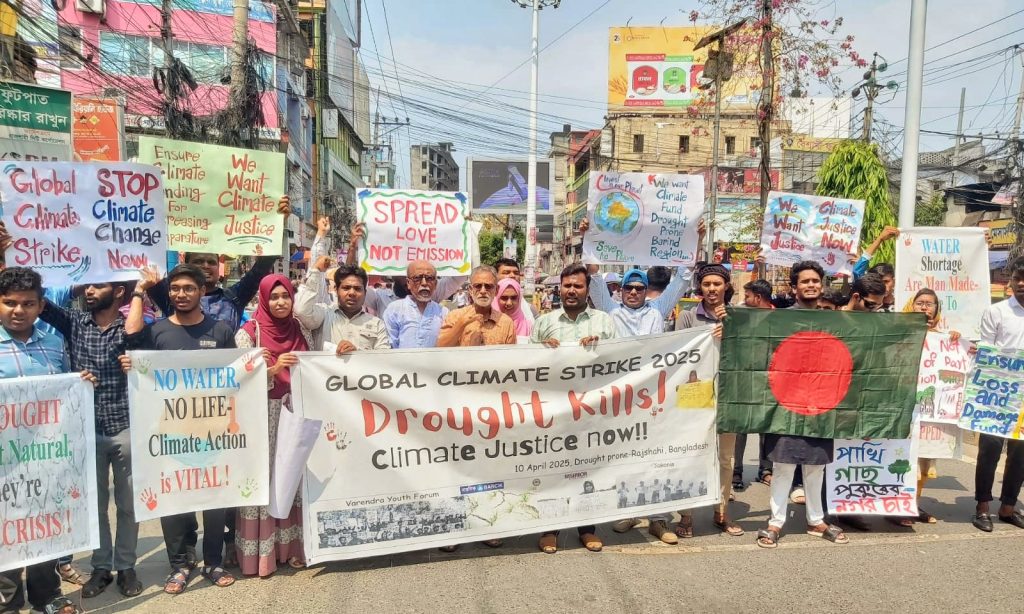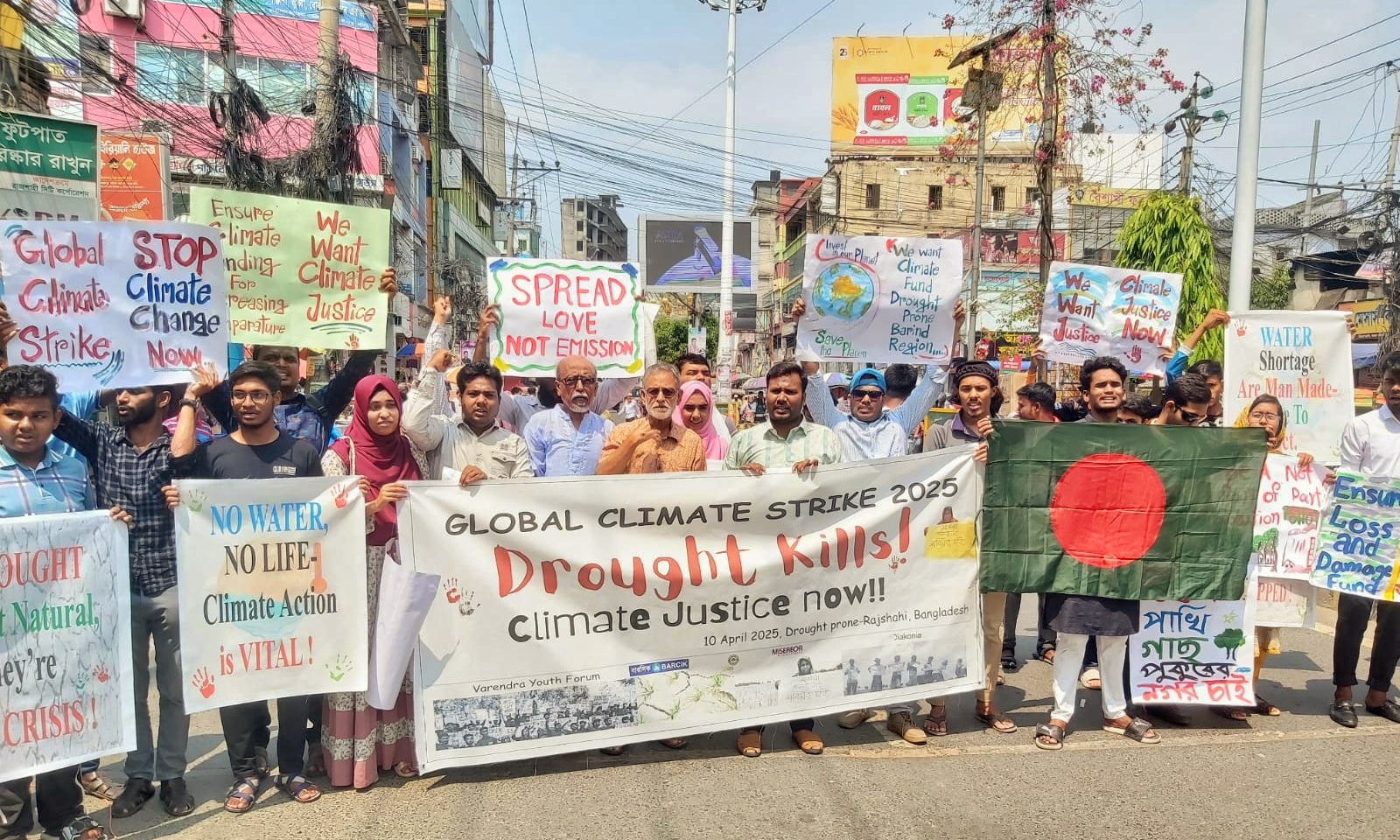Md. Shahidul Islam from Rajshahi,
A climate strike was held in Rajshahi demanding a separate drought fund and the formulation of a national drought policy for the Barind region within both national and global climate funding and policy frameworks. BARCIK and the Barind Youth Forum, a large youth alliance in the Barind region, organized the event recently at Shaheb Bazaar Zero Point in Rajshahi. Several environmental organizations from Rajshahi and the wider Barind area expressed their solidarity with the event.

Focusing on environmental conservation Mahmud Jamal Qaderi, convener of the July 36 Council, said, “In our Barind region, the environment is being destroyed every day. Trees are being cut down, ponds are being filled up in cities, and ponds are being dug in agricultural lands in villages.’ On one hand, rainfall is decreasing due to climate change, and on the other, we are also destroying the environment ourselves. We believe the government should take prompt action on these issues-he added.
Samrat Rayan, youth leader from Rajshahi and executive director of a social welfare organization said “Our Padma River is being depleted. There is no water due to the Farakka Barrage. This is also contributing to climate change in our area. We now need to protect our local natural resources.”
Upen Rabidas, president of the Adivasi Youth Council in Rajshahi while describing the misery of the indigenous people due to shortage of water said, “We indigenous people can no longer stay in our villages due to drought and water scarcity. We’ve lost our work, food sovereignty is shrinking, and people are being displaced from the Barind region. There needs to be a permanent and effective plan and initiative to solve these problems.”
Zulfikar Ali Haider, convener of the Save the Nature and Life Youth Unit, said, “Climate change and the water crisis are no longer just buzzwords. We must act now to solve these problems.” He went on saying “We may not be drowning like the coastal regions, but in the Barind region, we are silently drying up. Just because you are silent doesn’t mean we will be. Our demands must be heard and implemented.”
Other speakers at the strike included youth environmental activist Md. Hasibul Hasnat Rizvi and Shaikh Tasnim Jamal, president of the Barind Youth Forum.

In the climate strike, Shaikh Tasnim Jamal presented a 5-point demand that included: Securing a drought fund as compensation from climate-responsible wealthy nations, assessing the losses caused by climate change in all sectors and regions, formulating a national “Drought Policy” that considers the people and environment of the Barind region, launching a national “Drought Allowance” for drought-affected communities and reforming discriminatory water policies (such as the Jalmahal lease policy and BMDA irrigation policies) to make them more people-friendly.
Earlier while mentioning about the goals and objectives of the climate strike, Md. Shahidul Islam, researcher and regional coordinator of BARCIK said, Bangladesh is one of the most climate-vulnerable countries in the world. Alongside coastal areas, the Barind region in the northwest of the country is increasingly being identified as highly drought-prone.” He further added, in the global climate arena, there seems to be little noticeable initiative addressing this drought risk. On a national level as well, no integrated government initiative has yet been taken to address drought in the Barind region in a way that reflects local needs and realities.

